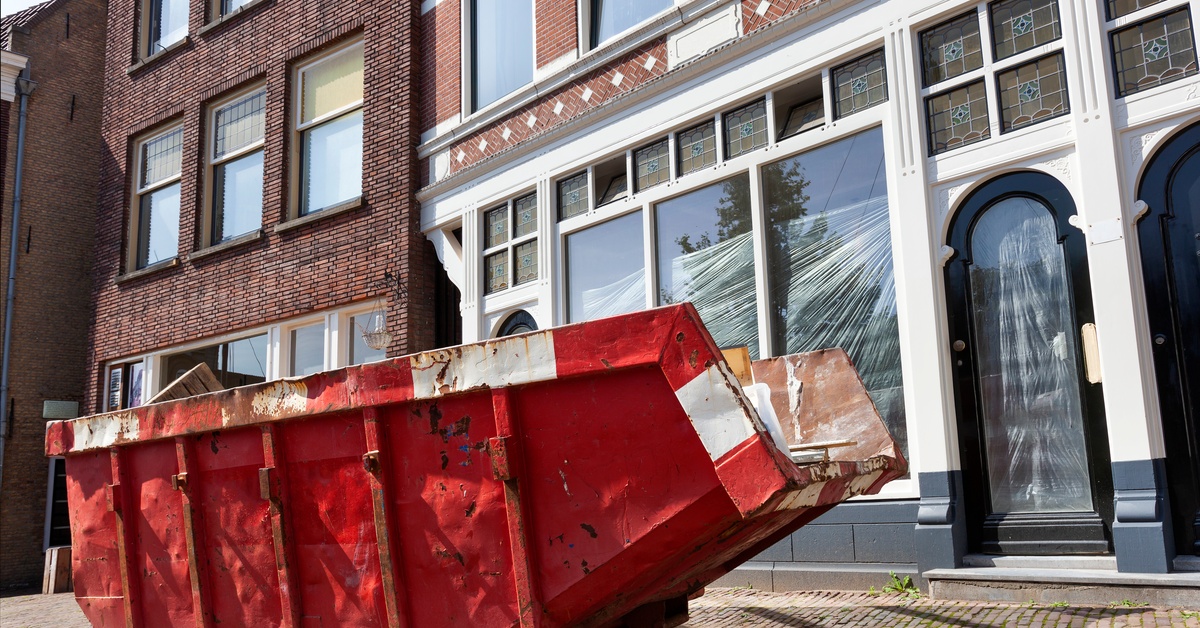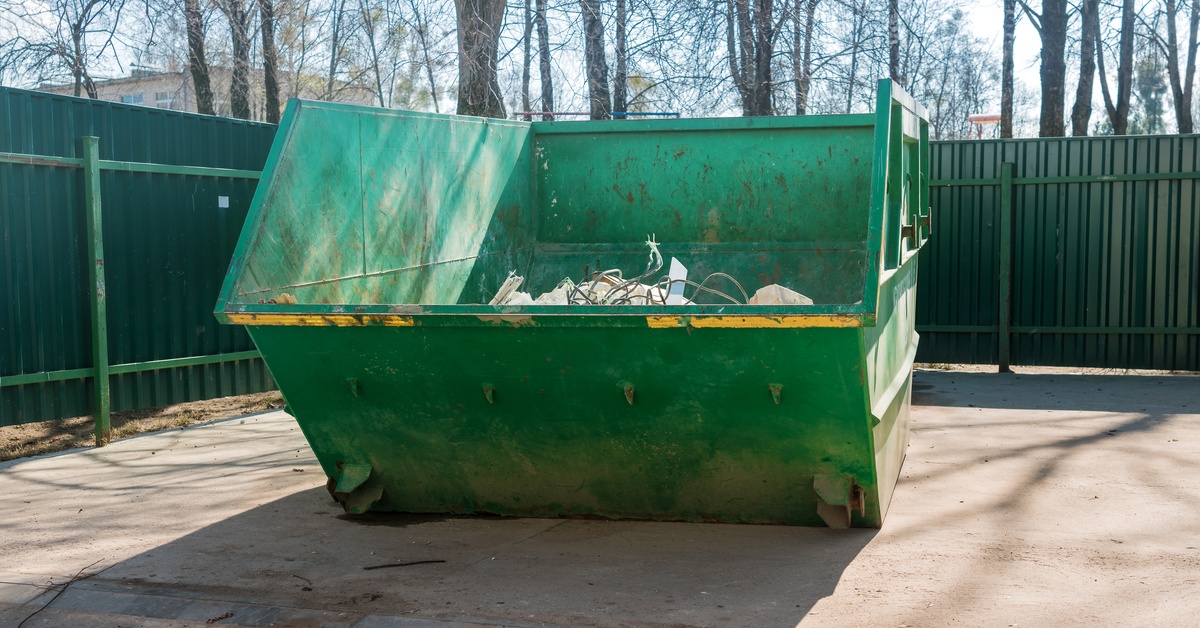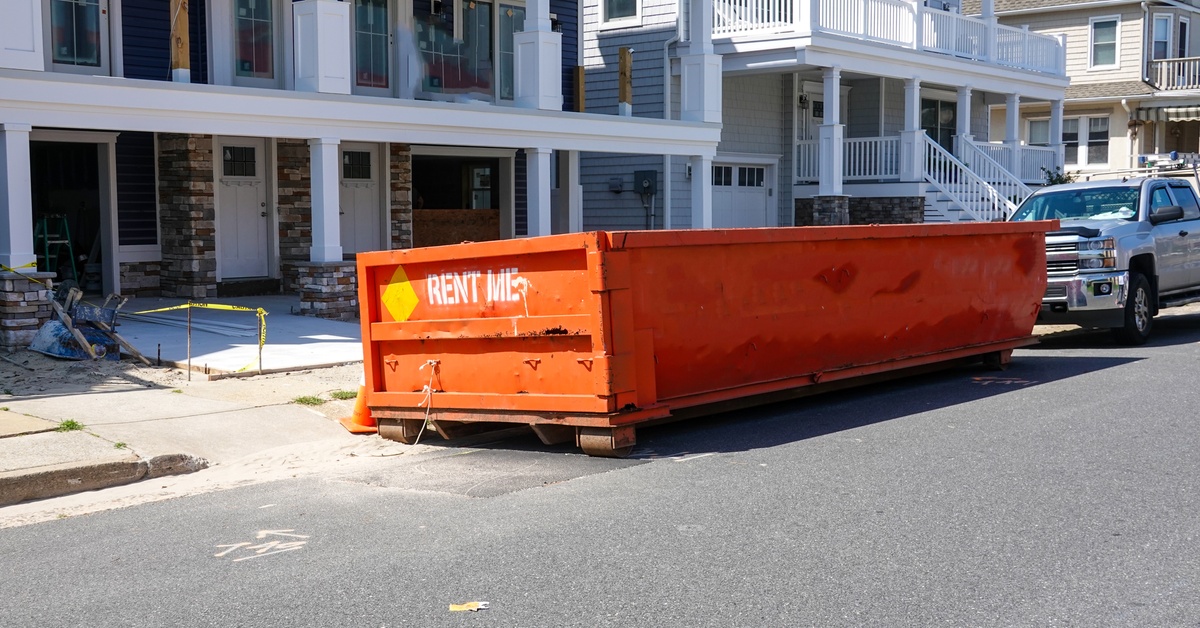
Renting a dumpster for a home renovation, major cleanup, or construction project provides a central, convenient place for all your waste, saving you countless trips to the local landfill. However, there are a few common errors that people tend to make during the rental process that often result in unexpected costs, delays, and logistical headaches. Let’s explore how you can avoid these common mistakes when renting a dumpster, so your project stays on track from start to finish.
Don’t Choose the Wrong Dumpster Size
One of the most frequent dumpster rental mistakes is selecting the wrong dumpster size. If you rent a dumpster that’s too small, you’ll find yourself with excess debris and no place to put it. This often means you’ll need to pay for an additional haul or a second dumpster, doubling your costs. On the other hand, renting a unit that’s too large means you’re paying for space you don’t use.
To prevent this, carefully estimate the amount of waste your project will generate. Consider the types of materials you’ll be discarding—bulky items such as furniture take up more space while small bits of rubble and dirt can fill in spaces around larger items. If you’re unsure, discuss your project with the rental company. They have the experience to help you choose the most appropriate and cost-effective size for your needs.
Don’t Overlook Local Regulations
Many people assume they can place a dumpster anywhere on their property, but local regulations might say otherwise. Some cities or homeowners associations (HOAs) have specific rules about where dumpsters can be placed and for how long. You may need a permit to place a dumpster on a public street, and there could be restrictions on placing it in a driveway or on your lawn.
Failing to check these rules can result in fines or a notice to move the dumpster, causing delays to your project. Before you finalize your rental, take a few minutes to contact your local municipality or HOA to find out about any applicable ordinances. This simple step can save you from significant trouble down the road.
Don’t Forget To Check for Prohibited Items
You can’t throw just anything into a rental dumpster. Rental companies have strict lists of prohibited materials for safety and environmental reasons. Disposing items improperly can lead to serious fines from the company and local authorities. Each company’s list of restricted items can vary slightly, so be sure to confirm what is and isn’t allowed.
Commonly prohibited items include:
- Hazardous materials such as paint, oil, and chemicals
- Tires
- Batteries
- Electronics (e-waste)
- Appliances containing Freon, such as refrigerators and air conditioners
Always ask for a list of prohibited items before you start filling your dumpster. If you have materials on that list, you will need to find a specialized recycling or disposal facility to handle them correctly.

Don’t Fill the Dumpster Unevenly
How you load your dumpster matters. Tossing items in randomly can create an uneven and inefficiently packed container that prevents you from getting the full value out of your rental. This can also make the dumpster unstable and difficult to transport safely.
To maximize space, load heavy, flat items first to create a stable base. Break down large items such as boxes and furniture whenever possible. Then, distribute the weight evenly by placing heavier materials at the bottom and spreading them across the container. This organized approach ensures you use every square foot and that the dumpster can be hauled away without issue.
Don’t Ignore the Weight Limit
Every dumpster has a specific weight limit, which is different from its volume capacity. The rental price you’re quoted often includes disposal up to a certain weight. If you exceed this limit, you will face additional fees, which can be quite substantial. Heavy materials such as concrete, dirt, shingles, and bricks can quickly push you over the limit, even if the dumpster isn’t full to the top.
When you discuss your project with the rental company, be sure to mention the types of materials you’ll be discarding. They can provide guidance on the expected weight and help you select a dumpster with an appropriate limit. Keeping an eye on what you’re throwing in can help you avoid a costly surprise when you get the final bill.
Don’t Overfill the Dumpster
You might be tempted to fill your dumpster to the very brim, but overfilling is a safety hazard and against the rules. Debris should not extend above the top rim of the container. Dumpster companies need to cover the load with a tarp for safe transport, and any items sticking out prevent this.
An overfilled dumpster might result in extra fees, or the driver may refuse to haul it until you’ve removed the excess debris. This can disrupt your project’s timeline and create more work for you. Adhere to the “level-load” line to ensure a smooth pickup.
Don’t Forget To Prepare the Drop-off Area
On delivery day, the dumpster needs a clear and accessible spot to be placed. The delivery truck requires a significant amount of space to maneuver and safely unload the container. Make sure the designated area is free of cars, equipment, and any other obstructions.
Also, consider the ground surface. Dumpsters are heavy, and they can cause damage to driveways or lawns, especially if the ground is soft. Placing plywood or large boards down before the dumpster arrives can help distribute the weight and protect the surface underneath.

Don’t Assume the First Quote Is the Best Price
Dumpster rental prices can vary between companies, so it pays to shop around. Don’t just settle for the first quote you receive. When comparing prices, make sure you understand what’s included. Ask about the rental period, weight limit, types of accepted debris, and any potential extra fees for late returns or overages. A seemingly low initial price might hide additional costs. Getting detailed quotes from a few different providers ensures you find the best value for your project.
Don’t Neglect Customer Service and Reviews
The price isn’t the only factor to consider. The quality of customer service can make a huge difference in your rental experience. Look for a company that is responsive, helpful, and transparent about its policies. Reading online reviews and testimonials can offer insight into how a company treats its customers. Plus, a reliable provider will help you avoid common mistakes when renting a dumpster and ensure your rental goes off without a hitch.
Don’t Wait Until the Last Minute To Book
Dumpster rentals are in high demand, especially during the peak seasons of spring and summer. Waiting until a day or two before your project starts could leave you without a dumpster when you need it most. To ensure availability, book your rental at least a week or two in advance. This gives you plenty of time to coordinate delivery and prepare your site.
Get Your Project Started on the Right Foot
By keeping these tips in mind, you can navigate the rental process with confidence. Proper planning ensures your project’s waste disposal is handled efficiently, safely, and affordably.
If you’re ready to get started and need to rent a dumpster in Dallas, Red-E-Bins is here to help. We offer a variety of sizes and provide clear, straightforward service to meet your needs. Contact us today to secure the right dumpster for your project.
